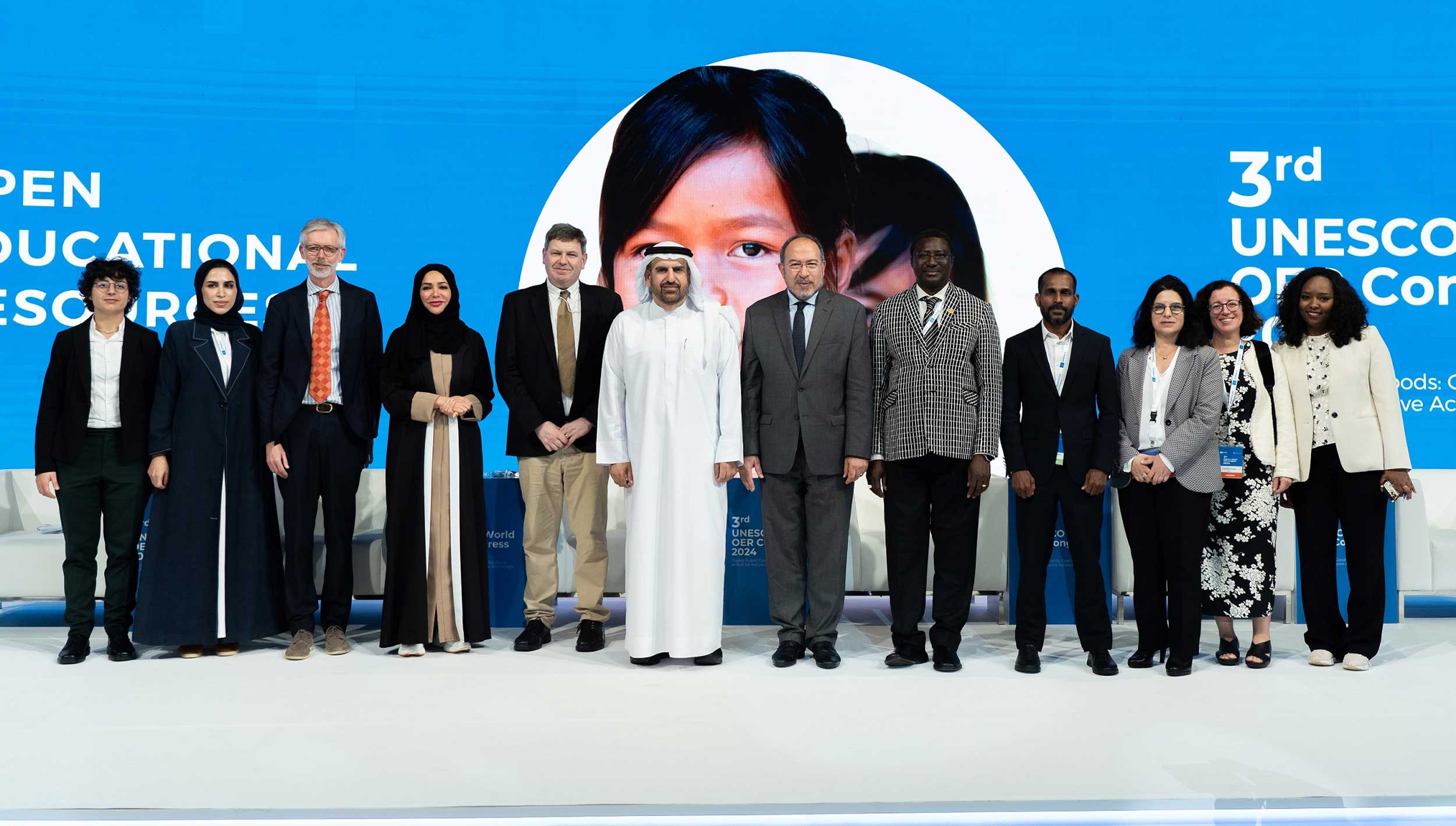3rd UNESCO World OER Congress in Dubai draws to successful conclusion with action plan to empower students across world
Dubai, UAE, 21 November 2024- The 3rd UNESCO World Open Educational Resources (OER) Congress, organized by the United Nations Educational, Scientific, and Cultural Organization (UNESCO) and the Mohammed bin Rashid Al Maktoum Knowledge Foundation (MBRF), successfully concluded recently, after two transformative days of high-level discussions and breakout sessions.
Themed ‘Digital Public Goods: Open Solutions and AI for Inclusive Access to Knowledge’, the event was held for the first time in the Arab region, congregating global leaders, policymakers, and educational institutions to emphasize the significance of leveraging OER and emerging technologies to ensure equitable access to education across the world. More than 500 global participants attended this two-day event, including ministers, academics, and representatives from the private sector.
During a session titled ‘Leveraging Open Solutions for a Resilient Digital Compact Environment’, Dr. Tawfik Jelassi, Assistant Director-General for Communication and Information, UNESCO, emphasized the vast benefits of OER in navigating worldwide education challenges. He underscored the importance of countries and organizations working together and leveraging successful experiences to offer educational solutions. Additionally, Dr. Jelassi highlighted the use of advanced digital tools to enhance the education field.
His Excellency Jamal bin Huwaireb, CEO of the MBRF, said: “The congress made significant strides toward delivering open educational resources to underserved communities. It marks a new achievement in the enduring collaboration between the MBRF, the UN, and its associated bodies. Holding this event in Dubai represents the culmination of our collaborative efforts in knowledge dissemination and development, underscoring the UAE's prominent role in supporting major development endeavors and hosting global gatherings.”
The congress featured panel discussions facilitated by several senior government officials and ministers from countries worldwide, including the United States, the United Kingdom, Ireland, Slovenia, Tunisia, the Bahamas, Trinidad and Tobago, and Uruguay. High-profile representatives from UNESCO, the Islamic World Educational, Scientific and Cultural
Organization (ICESCO), and the Arab League Educational, Cultural and Scientific Organization (ALECSO) also attended the event. Moreover, Malaysia, Morocco, Cuba, and Madagascar highlighted prominent experiences implementing open education solutions.
Participants engaged in vital discussions regarding important topics related to harnessing open solutions for building flexible digital ecosystems. They underscored the significance of leveraging cutting-edge technologies, such as AI and machine learning, to increase digital accessibility. The discussions also highlighted the advancement of worldwide digital cooperation and the resolution of intellectual property concerns in advanced technologies and AI. Furthermore, they explored methods to improve equitable educational opportunities and address the educational requirements of the African continent, small island developing states, and youth with regard to obtaining quality and fair education.
The congress discussions involved a range of initiatives covering AI and OER. They highlighted the UNESCO University Twinning Network on Open Education and the UNESCO Sustainable Development Solutions Network’s Open Educational Resource Repository. Moreover, strategies to expand access to open educational content were explored locally and globally.
Furthermore, the congress examined the report on side sessions related to the implementation of UNESCO's 2019 recommendation on open educational resources. It focused on the ‘Dubai Declaration on Open Educational Resources’, which emphasized the advancement of quality and inclusive education, the building of new workforce capacities, policies regarding open educational digital resources, ensuring quality and accessibility, the sustainability of public digital resources, and fostering partnerships to enhance digital collaboration.
The congress put forth key recommendations for countries to offer these educational resources as part of a 7-year strategy aimed at empowering a larger number of students globally. The conclusion of the congress delivered a significantly positive and influential message, highlighting the remarkable potential of OER and its role in achieving comprehensive accessibility of knowledge.








